What is Waterproof Coating?
- 02/03/2025
- yuruwaterproof.com
Waterproof coatings play an important role in providing durability and integrity for working in construction. It have actually been engineered specifically for closing buildings and safeguarding them against water intrusion, a problem that can wreak havoc over many years’ duration.
Regardless of whether your work is a roof, a basement, or a bathroom, having information about waterproof coatings and proper application is important for long-term protection for your work.
In this article, we will cover a variety of applications for waterproof coatings in construction, most encountered obstacles in working with them, and successful tips for your work to remain safe and sound and moisture free.
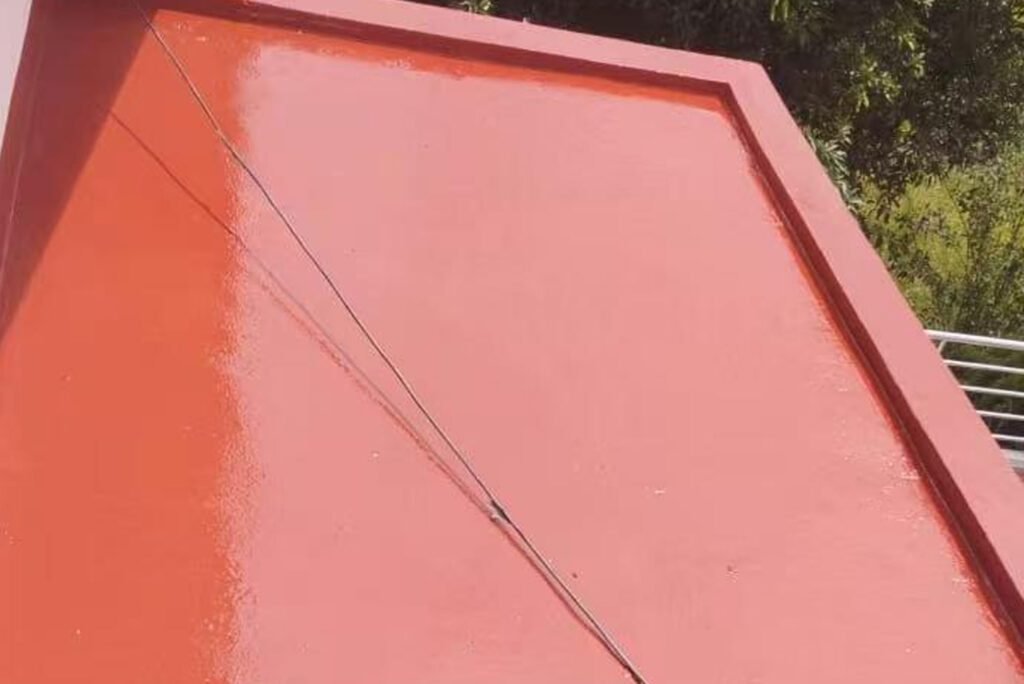
What is Waterproof Coating?
Waterproof coating is a protective cover sprayed onto numerous types of surfaces in a move to shut out water intrusion. Waterproof coatings can be utilized in buildings for exterior walls, roofing, basements, and any exterior areas that can have contact with water. Waterproof coatings have one function: protecting buildings’ structures through moisture shutout, and long-term degradation, such as corrosion, mold, and decay, cannot then occur in them.
Waterproof coatings are customarily designed with a variety of materials, each with a specific function or application. Most common types include:
- Polyurethane Waterproof Coatings: Due to its high adhesion and elasticity, ideal for use in moving parts and expansion joints.
- Epoxy Waterproof Coatings: Chemical and wear resistant, best for high durability locations.
- Acrylic Waterproof Coatings: Most resistant to UV and easiest to apply, and most often used for exterior work.
Each type of waterproofer is chosen in relation to environment and construction requirements of a work.

Applications of Waterproof Coatings in Construction Projects
Waterproof coatings play a critical role in the overall durability and longevity of a building. They are applied in various areas to prevent water infiltration, which can cause structural damage, mold growth, and costly repairs.
Here are the key applications of waterproof coatings in construction:
Roof Waterproofing
Roof waterproofing is essential for protecting the roof from rainwater and moisture damage. Over time, exposure to weather conditions can cause leaks, which may lead to water damage inside the building.
Waterproof coatings are used to create a seamless barrier that prevents water penetration, thus extending the lifespan of the roof and reducing maintenance costs.
- Benefits:
- Prevents leaks and water damage.
- Enhances roof durability and weather resistance.
- Reduces maintenance requirements.
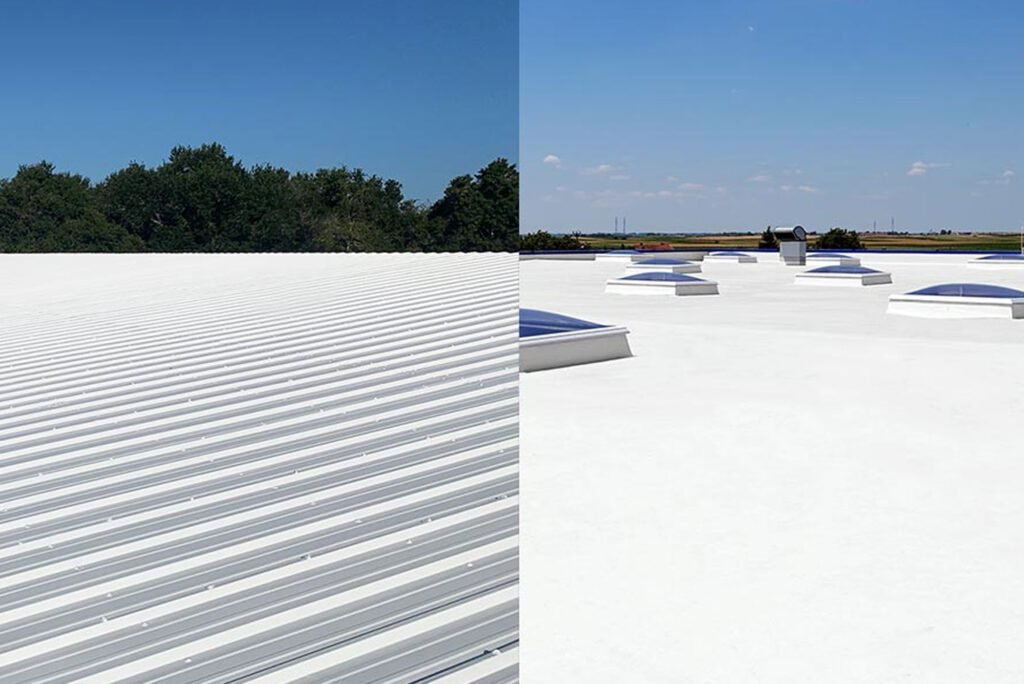
- Ideal Coating Types:
Polyurethane Waterproof Coating: Flexible, UV-resistant, and effective against roof movements.
Acrylic Waterproof Coating: Suitable for flat roofs, offering UV protection and ease of application.
Basement Waterproofing
Basements are highly susceptible to water infiltration, especially in areas with high groundwater levels or heavy rainfall.
Waterproof coatings are applied to basement walls and floors to prevent water from seeping into the interior, thereby protecting the foundation and the entire structure.
Without proper waterproofing, basements can experience moisture buildup, leading to mold, mildew, and weakened foundation walls.
- Benefits:
- Prevents water seepage into the basement.
- Protects against mold and mildew growth.
- Safeguards the building’s foundation integrity.
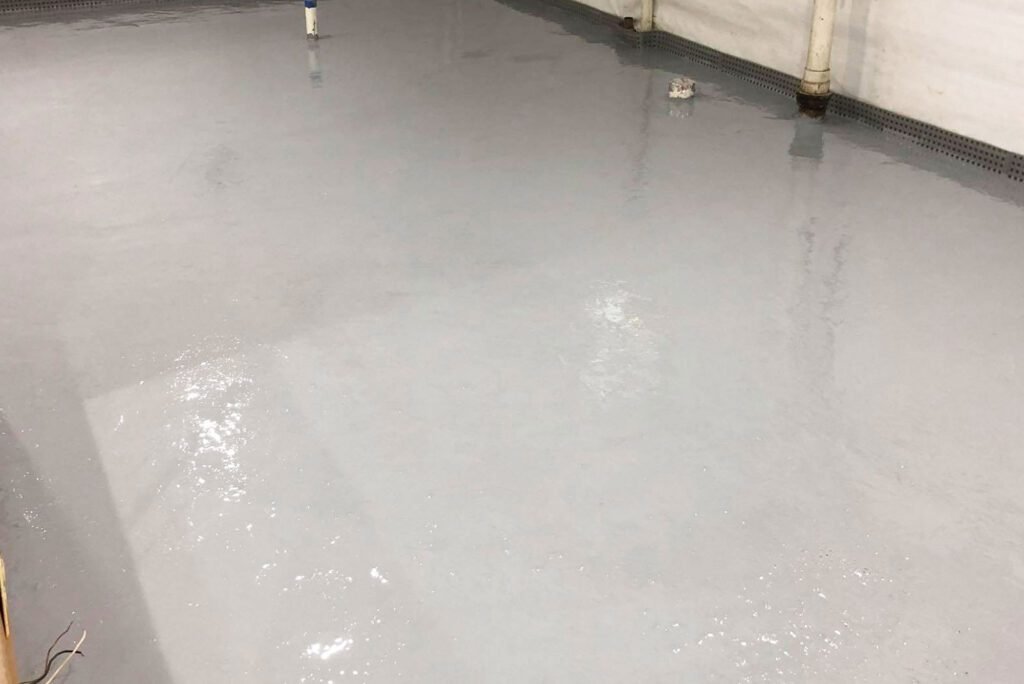
- Ideal Coating Types:
- Epoxy Waterproof Coating: Highly durable, resistant to moisture and chemicals, perfect for underground environments.
- Polyurethane Waterproof Coating: Excellent for flexible, water-resistant applications on basement surfaces.
Bathroom and Kitchen Waterproofing
Bathrooms and kitchens are exposed to constant moisture, making them prime areas for waterproofing applications.
Waterproof coatings are used to create a protective layer on walls and floors, preventing water from penetrating surfaces.
This helps avoid water damage, mold growth, and deterioration of materials in these high-moisture environments.
- Benefits:
- Prevents water from seeping into walls and floors.
- Reduces the risk of mold and mildew growth.
- Protects structural materials from damage caused by prolonged exposure to water.
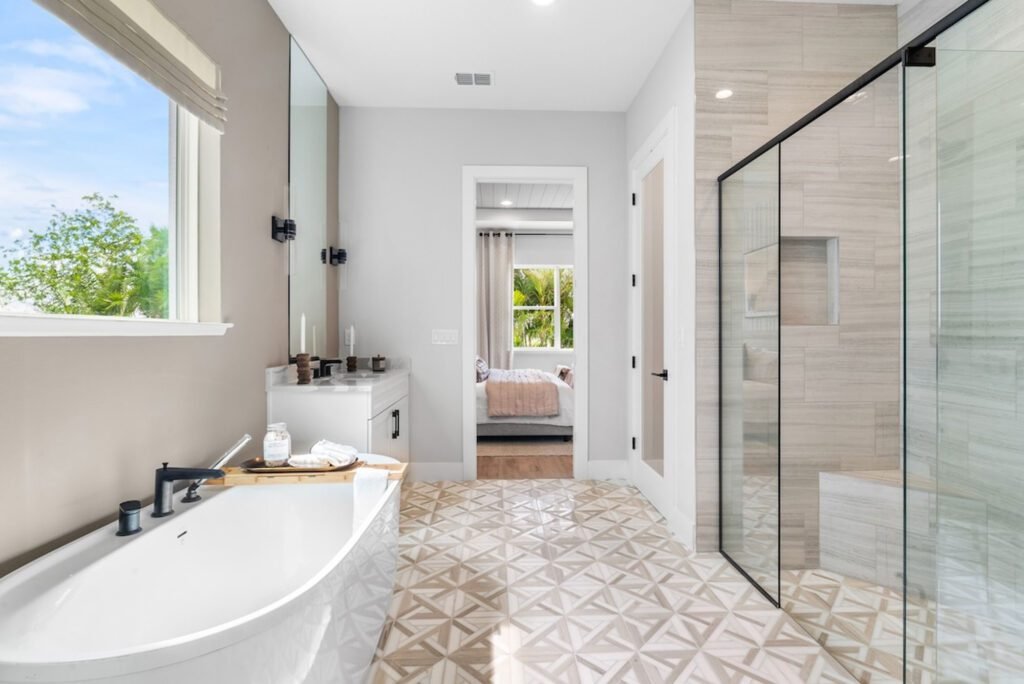
- Ideal Coating Types:
- Acrylic Waterproof Coating: Easy to apply, UV-resistant, and effective for bathroom and kitchen applications.
- Epoxy Waterproof Coating: Provides a durable, moisture-resistant layer, ideal for high-moisture areas.
External Wall Waterproofing
External walls are exposed to weather elements such as rain, wind, and UV rays, making them vulnerable to water penetration.
Waterproof coatings on external walls prevent water from seeping into the structure, which can lead to cracks, mold, and corrosion.
Protecting the exterior walls ensures that the building remains structurally sound and maintains its aesthetic appeal.
- Benefits:
- Shields the building from external weather damage.
- Prevents water penetration and protects the structural integrity of the building.
- Enhances the aesthetic appearance by preventing discoloration caused by water stains.
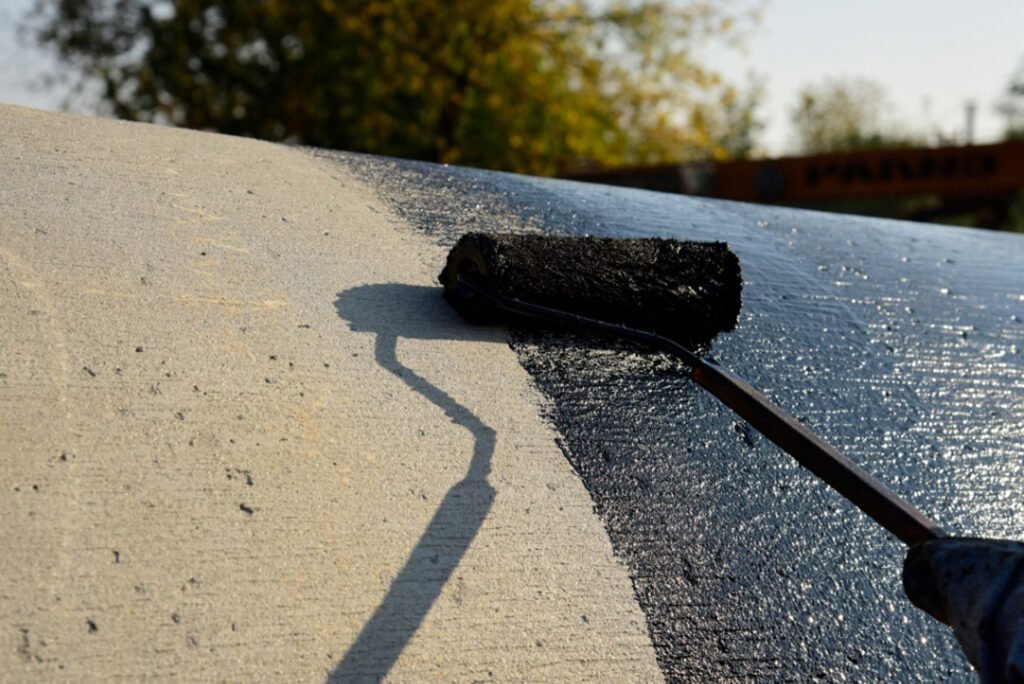
- Ideal Coating Types:
- Acrylic Waterproof Coating: Ideal for protecting external walls, offering UV resistance and weatherproofing.
- Epoxy Waterproof Coating: Provides a durable and long-lasting protective layer for harsh outdoor conditions.
| Application Area | Benefits Ideal | Waterproof Coating Type |
| Roofs | Prevents water penetration from rainfall, reduces risk of leaks. | Polyurethane, Acrylic |
| Basements | Stops water from seeping into underground spaces, avoiding foundation damage. | Epoxy, Polyurethane |
| Bathrooms & Kitchens | Protects against water exposure, prevents mold and mildew growth. | Acrylic, Epoxy |
| External Walls | Shields the building from harsh weather, reducing water damage to surfaces. | Acrylic, Epoxy |
These key applications demonstrate how waterproof coatings are indispensable in construction projects. Each area of the building benefits from tailored waterproofing solutions to ensure optimal protection against water damage and to extend the lifespan of the building.

Common Waterproof Coating Issues and Solutions
While waterproof coatings are highly effective, certain issues may arise during their application or over time. Addressing these challenges promptly ensures the longevity and performance of the waterproofing system.
Below are some of the most common issues encountered in waterproof coating projects and their corresponding solutions:
Issue 1: Cracking of Waterproof Coating
Cracking is a common issue, especially in areas where the building structure undergoes movement or stress. This can occur when the coating is too rigid or improperly applied.
- Solution:
- Surface Preparation: Ensure that the substrate (surface to be coated) is clean, dry, and smooth before application. Any cracks or holes should be repaired prior to coating.
- Use Flexible Coatings: Opt for high-elasticity waterproof coatings, such as polyurethane, which can stretch and adapt to minor movements in the building without cracking.
- Avoid Over-Application: Do not apply the coating too thickly, as excessive layers may lead to cracking during curing. Always follow the manufacturer’s recommended application thickness.
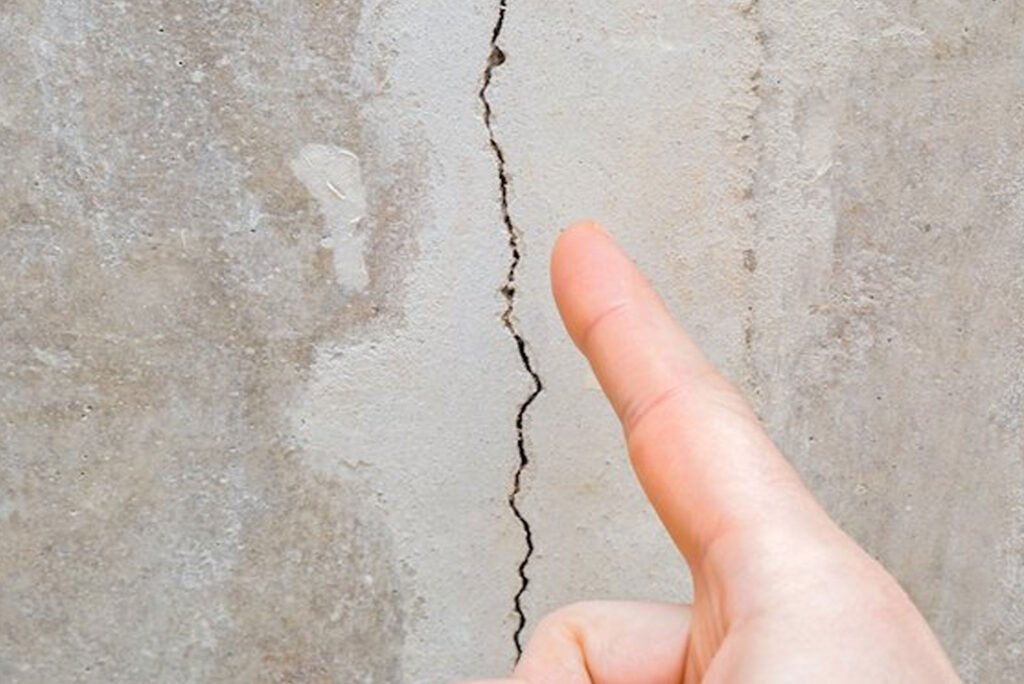
Issue 2: Waterproof Coating Peeling or Detaching
Peeling or detachment from the surface typically occurs when the coating fails to bond properly to the substrate, often due to poor surface preparation or environmental factors.
- Solution:
- Strong Adhesion Coatings: Select waterproof coatings with strong adhesion properties, such as epoxy or polyurethane, that bond well with a variety of substrates.
- Proper Surface Treatment: Clean the surface thoroughly to remove dirt, grease, and loose particles. For optimal adhesion, ensure the substrate is dry and roughened to allow better bonding.
- Environmental Control: Avoid applying coatings in extreme temperatures or humidity levels, as these conditions can negatively impact the bonding process.
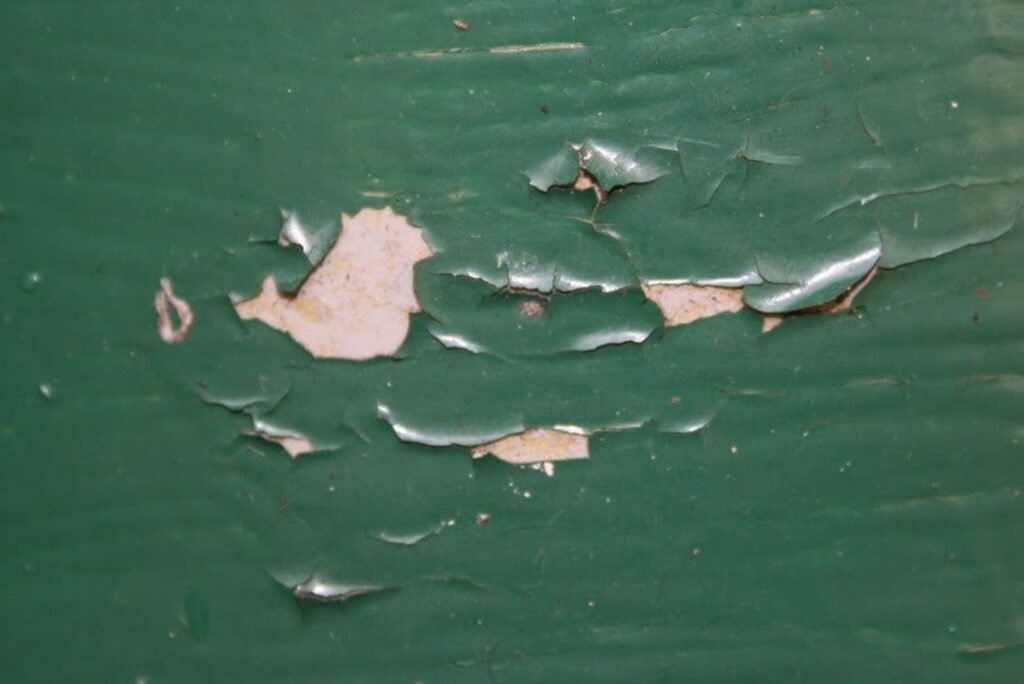
Issue 3: Unsatisfactory Waterproofing Effect
In some cases, the waterproofing may not perform as expected, allowing moisture to penetrate the surface. This could be due to insufficient coating thickness, improper application, or environmental factors.
- Solution:
- Correct Application Thickness: Ensure that the coating is applied according to the specified thickness recommended by the manufacturer. If needed, apply multiple layers for areas with higher exposure to water.
- Temperature and Humidity Control: Apply the waterproof coating when the temperature is within the recommended range, as both high and low temperatures can affect the curing process and overall performance of the coating.
- Inspect for Coverage Gaps: Check the entire surface for any missed spots or thinly coated areas, which can result in water infiltration.
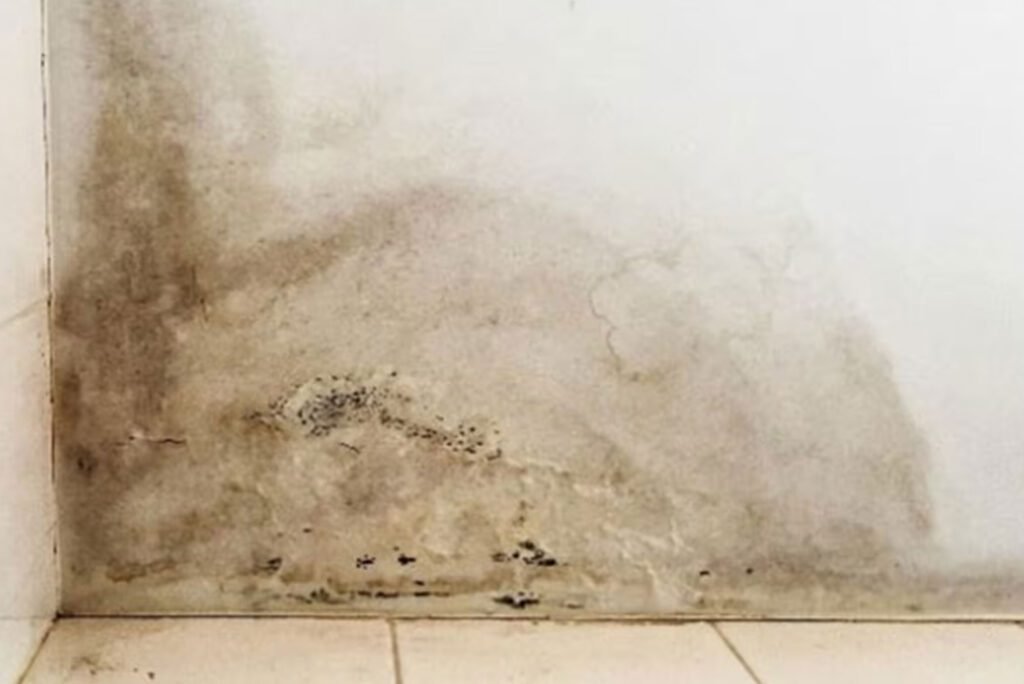
By understanding these common issues and implementing the appropriate solutions, you can ensure the successful application and long-term performance of waterproof coatings in construction projects.
Proper preparation, the right materials, and attention to environmental conditions are key to achieving effective waterproofing results.
How to Choose the Right Waterproof Coating for Construction Projects?
Choosing the appropriate waterproof coating for a construction project is a critical decision that impacts the durability and performance of the structure.
Several factors must be taken into account to ensure that the selected coating provides optimal protection and longevity. Below are key considerations when selecting a waterproof coating:
1. Project Type
The type of project and the specific areas that require waterproofing will determine which type of coating is most suitable. Different parts of the building, such as roofs, basements, and bathrooms, have different exposure levels to moisture and require coatings with varying properties.
- Roofing: For flat or sloped roofs, coatings need to be flexible and UV-resistant to withstand weather conditions and thermal expansion.
- Recommended Coating Types: Polyurethane, Acrylic
- Basements: Basements are prone to groundwater exposure, so coatings must be durable and resistant to high moisture levels.
- Recommended Coating Types: Epoxy, Polyurethane
- Bathrooms and Kitchens: These high-moisture areas require coatings that prevent water from penetrating walls and floors.
- Recommended Coating Types: Acrylic, Epoxy
- External Walls: External walls face weather elements, so coatings need to resist UV rays and rain while offering a protective barrier.
- Recommended Coating Types: Acrylic, Epoxy
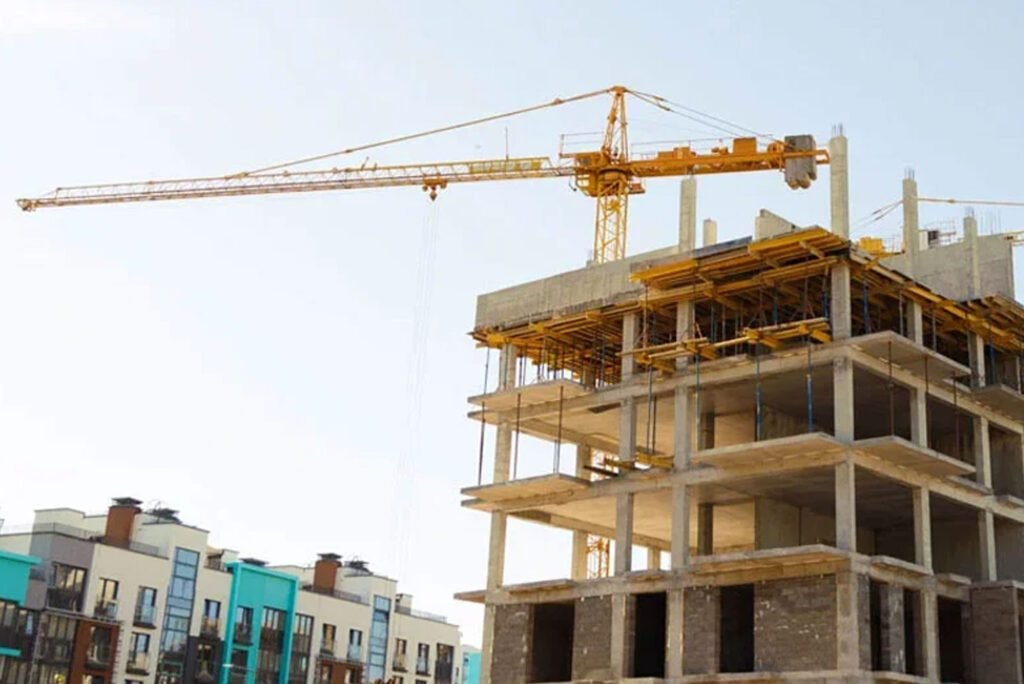
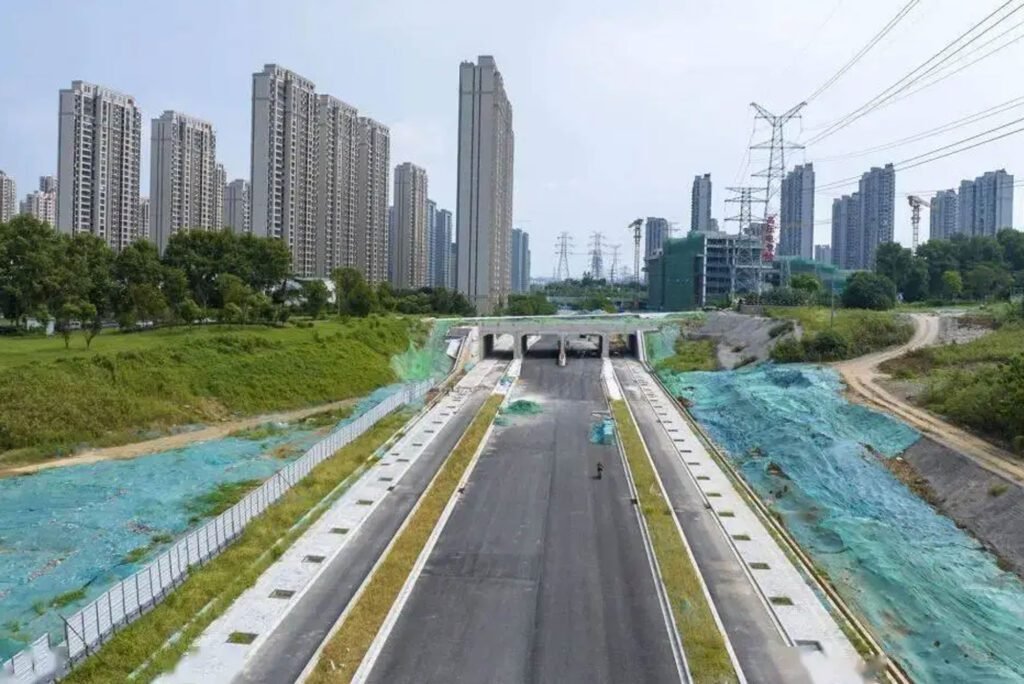
2. Environmental Conditions
Environmental factors, such as temperature variations, humidity, and UV exposure, play a crucial role in determining the right waterproof coating. The coating must be able to withstand local weather conditions without deteriorating quickly.
- Temperature Range: For projects in regions with extreme temperatures, choose coatings that maintain their flexibility and performance in both high and low temperatures.
- UV Resistance: If the coating will be exposed to direct sunlight, UV resistance is essential to prevent degradation.
- Moisture Levels: In areas with high humidity or frequent rainfall, select coatings that offer excellent water resistance and prevent water seepage effectively.
Recommended Coating Types:
- Polyurethane coatings are ideal for areas with high temperature variation due to their flexibility and thermal stability.
- Acrylic coatings offer strong UV protection, making them suitable for areas exposed to direct sunlight.

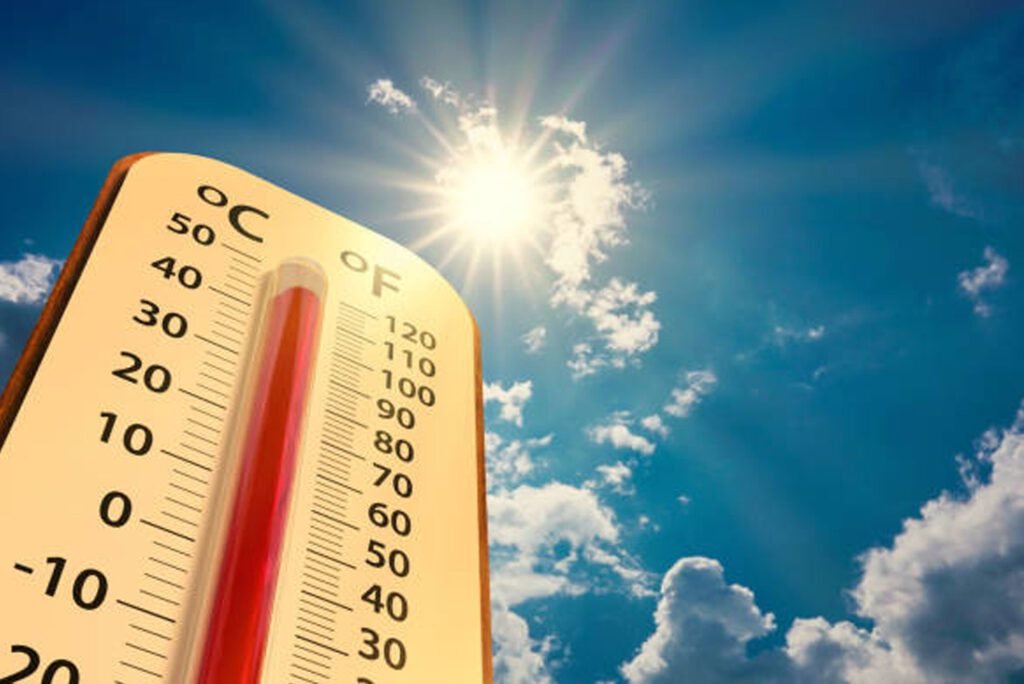
3. Ease of Application
For large-scale projects, it’s essential to choose a waterproof coating that is not only effective but also easy to apply, especially if large quantities need to be covered in a short time. Consider the application process, including curing time, number of layers required, and whether professional installation is needed.
- Batch Application: If the project involves applying large quantities of coating over a wide area (e.g., large roofs or basements), select coatings that are easy to spread and offer quick drying times.
- Surface Compatibility: Ensure that the coating is compatible with the surface material, whether concrete, metal, or wood.
- Workability: Choose coatings that can be easily applied by your construction team, either by brush, roller, or spray, depending on the project scale.
Recommended Coating Types:
- Acrylic coatings are easy to apply, making them ideal for large projects that require fast application.
- Epoxy coatings provide robust performance but may require more expertise during application.
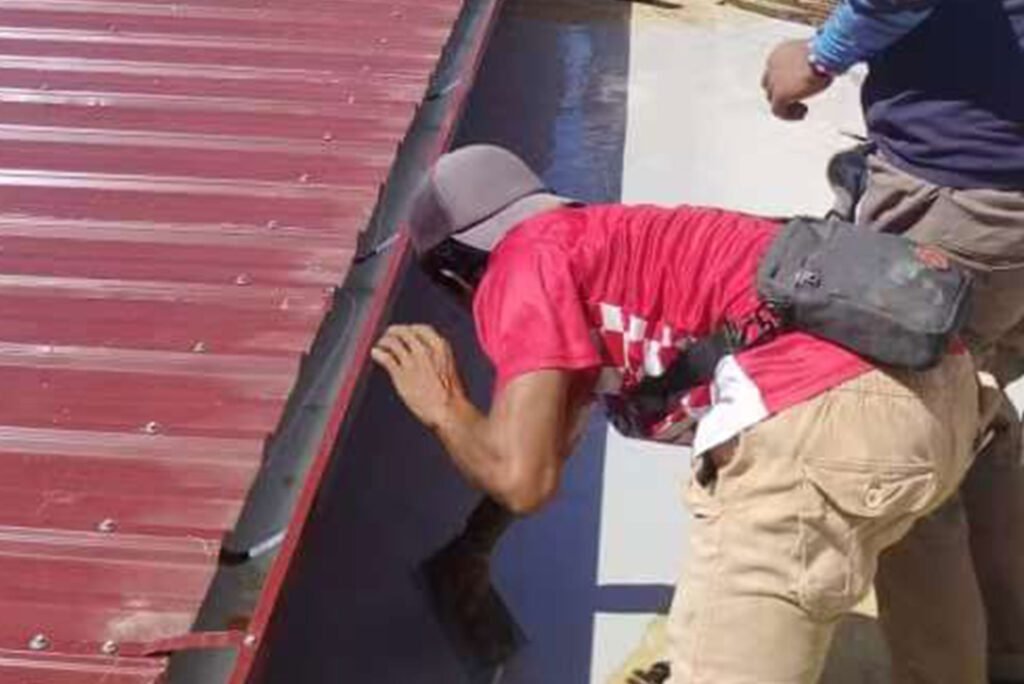
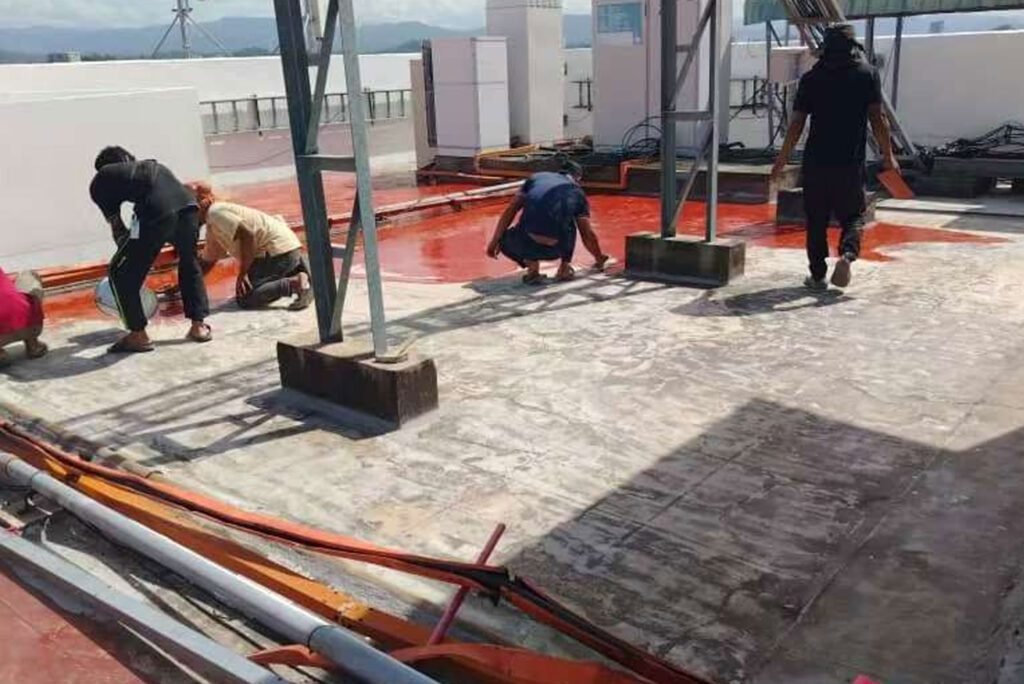
By taking these key factors into account—project type, environmental conditions, and ease of application—you can select the most appropriate waterproof coating for your construction project.
The right choice will not only ensure that the building remains protected from water damage but also contribute to the overall cost-effectiveness and longevity of the structure.
Advantages of YURU Waterproof Coatings and Customization Services
YURU Waterproof Coatings provide high-quality waterproofing solutions for a variety of construction projects. With a focus on durability, performance, and customer satisfaction, YURU offers a range of advantages that set its products apart in the market. Below are the key benefits of choosing YURU waterproof coatings for your projects:
1. High-Quality Raw Materials
YURU uses only top-grade, high-performance materials in the production of its waterproof coatings. This ensures that the coatings provide long-lasting protection against water infiltration and maintain their effectiveness over time. By using advanced technology and premium raw materials, YURU ensures that its coatings deliver superior durability, flexibility, and resistance to various environmental factors.
Benefits:
- Long-term waterproof performance.
- Resistance to harsh weather conditions and temperature fluctuations.
- Enhanced protection against corrosion, mold, and mildew.
2. Customization Services
Understanding that each construction project has unique needs, YURU offers tailor-made waterproof coating solutions to meet specific requirements. Whether you need a coating for a roof, basement, bathroom, or external wall, YURU can customize the product to suit the environmental conditions and functional demands of the project. Their expert team works closely with clients to design the most effective waterproofing solution.
Benefits:
- Solutions tailored to specific project needs.
- Enhanced performance based on the project’s environmental conditions.
- Flexible options for large-scale or specialized applications.
3. Reliable After-Sales Service
YURU’s commitment to customer satisfaction doesn’t end with the delivery of the product. The company offers comprehensive after-sales support to ensure that the waterproof coatings perform as expected. From providing guidance on proper application to troubleshooting any issues that arise during the project, YURU ensures that clients receive continuous assistance to achieve optimal results.
Benefits:
- Assistance with product application and troubleshooting.
- Ongoing customer care to ensure the long-term effectiveness of the coating.
4. Flexible Procurement Options for Wholesale Clients
YURU understands the needs of bulk buyers and offers flexible procurement options for wholesale clients. Whether you’re a distributor, contractor, or project manager, YURU’s adaptable order system allows you to purchase the required quantity of waterproof coatings at competitive prices. The company also ensures timely deliveries to keep projects on track and avoid delays.
Benefits:
- Tailored ordering process for large-scale purchases.
- Competitive pricing for bulk orders.
- Reliable delivery schedules to support project timelines.
YURU’s waterproof coatings offer a comprehensive solution for construction projects, providing high-performance materials, customization options, and excellent customer service.
By choosing YURU, clients can ensure the long-lasting effectiveness of their waterproofing system and achieve peace of mind throughout the lifecycle of the project. Whether you’re a contractor, wholesaler, or project manager, YURU provides reliable, high-quality solutions that cater to your specific needs.

In conclusion, waterproof coatings are a crucial element in ensuring the longevity and durability of any construction project. By understanding their various applications—whether it’s for roofs, basements, bathrooms, or external walls—you can make informed decisions about the best solutions for your specific needs.
Choosing the right waterproof coating is not a one-size-fits-all approach; it depends on the project type, environmental conditions, and ease of application. With the right selection, these coatings provide not only superior protection but also contribute to the overall success and durability of the structure.
At YURU Waterproof, we pride ourselves on offering high-quality, customizable waterproof coating solutions designed to meet the unique needs of every project. From reliable materials to exceptional after-sales support, we are committed to delivering effective and long-lasting waterproofing results for our clients. Whether you are a contractor, wholesaler, or project manager, YURU has the expertise and flexibility to ensure your project stays protected, no matter the scale.
Waterproof Coating
- One-component oil-based polyurethane waterproof coating
- One-component water-based polyurethane waterproof coating
- Two-component polyurethane waterproof coating
- Two-component 6.0Mpa polyurethane waterproof coating
- Transparent Waterproof Glue
- Nano Invisible Waterproof Agent
- Silicone Waterproof Coating
- Acrylic Waterproof Coating For Metal Roof
- JS Polymer Waterproof Coating
- High Elastic Liquid Rubber Waterproof Coating
- Cement-based Penetrating Crystallization Waterproof Coating
